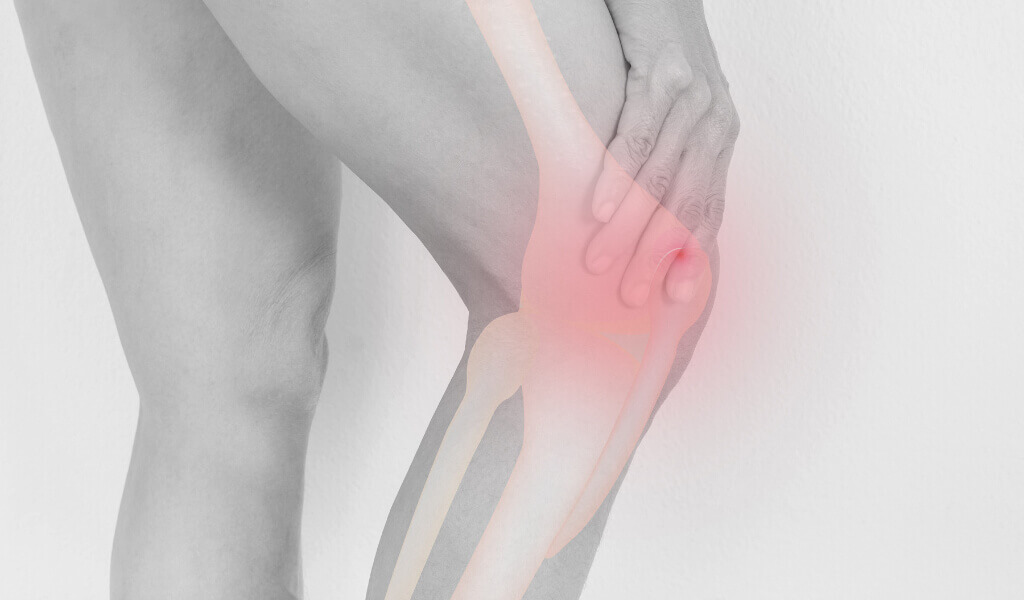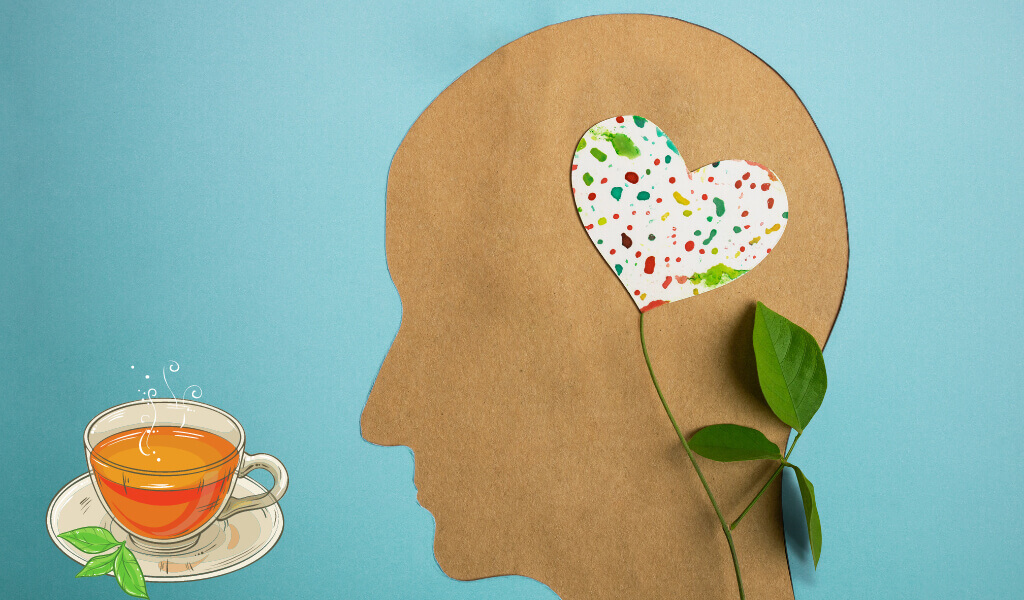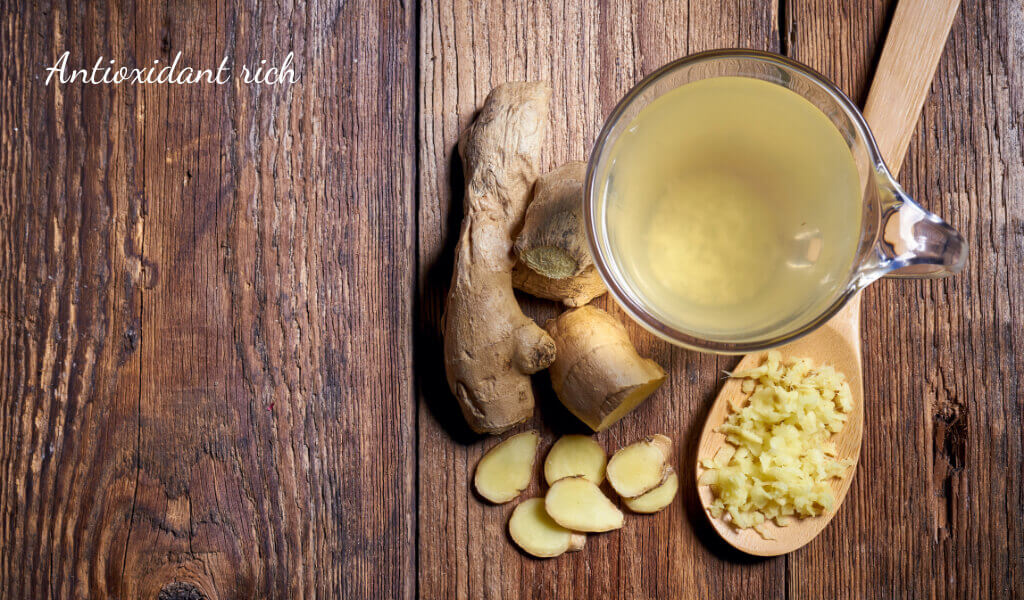Discover the incredible Ginger tea benefits that can transform your daily routine.
This ancient elixir has been treasured for ages for its capacity to treat a wide range of illnesses and advance general wellbeing since it is brimming with potent antioxidants and therapeutic capabilities.
However, why precisely is ginger tea such a strong digestive health enhancer, and how can it make you feel your best?
Quotes of tea at Today
“When I drink tea I am conscious of peace. The cool breath of heaven rises in my sleeves, and blows my cares away.” – Lo Tung
| Benefit | Concise Details/Supporting Information | |
| Quick view | 1. Relieves Motion Sickness |
1988 study: Reduced vomiting and cold sweating with 1 gram of powdered ginger.
|
| Quick view | 2. Alleviates Nausea |
Helps with morning sickness, chemotherapy, post-surgery nausea. Consult healthcare before use.
|
| Quick view | 3. Supports Heart Health |
Benefits include lowered blood pressure, cholesterol, and improved blood circulation.
|
| Quick view | 4. Manages Weight & Blood Sugar |
Increases thermogenesis, controls appetite, improves blood sugar control.
|
| Quick view | 5. Relieves Pain & Inflammation | Effective for knee osteoarthritis and menstrual cramps. |
| Quick view | 6. Cancer-fighting Properties |
Test-tube studies: Hinders cancer cell growth, especially pancreatic and colon cancers.
|
| Quick view | 7. Protects the Brain | Potential protection against Alzheimer’s and age-related decline. |
| Quick view | 8. Eases Digestive Discomfort |
Comparable effectiveness to some medications for morning sickness.
|
| Quick view | 9. Aids in Weight Loss | Impacts obesity via appetite control and increased thermogenesis. |
| Quick view | 10. Eases Headaches and Migraines | Demonstrated pain-relieving properties for headaches. |
| Quick view | 11. Rich in Antioxidants | Antiproliferative effects on certain tumour cells. |
| Quick view | 12. Relieves Period Pain |
As effective as over-the-counter painkillers; reduced period pain in studies.
|
| Quick view | 13. Good for Teeth | Contains antimicrobial and antifungal properties for oral health. |
| Quick view | 14. Helps with Nonalcoholic Fatty Liver Disease | Benefits: Reduced inflammation, better insulin resistance. |
| Quick view | 15. Soothes Sore Throats and Colds |
Prevents colds, effective against strep throat, respiratory virus; potent with honey.
|
What does ginger contain?
Ginger is packed with compounds like Shogaols and Gingerols, which can work wonders for your health. I came across a 2015 review that mentioned how these excellent compounds possess anticancer, antimicrobial, anti-inflammatory, antioxidant, and antiallergic properties.
In a 2019 article, I found, fresh ginger has higher levels of gingerols, while their levels slightly decrease in dried ginger. However, dried ginger does contain higher amounts of schools.
Now, let’s delve deeper into the potential health benefits of ginger tea and what the latest research has to say about it.
The Nutritional Content: Ginger Tea Benefits
One of the healthiest spices you can discover is ginger, which is a true gift from the earth. This blooming plant is native to Southeast Asia and is a member of the Zingiberaceae family, which includes galangal, cardamom, and turmeric. The plant’s subterranean stem, or rhizome, is the component humans often eat.
You’ll often find ginger as a staple ingredient in many Indian households. The best part is you can enjoy ginger in so many forms – fresh, dried, powdered, or even as an oil or juice.
One tablespoon of fresh ginger has:
- Calories 4.8
- Carbohydrate: 1.07 grams (g)
- Dietary fiber: 0.12 g
- Protein: 0.11 g
- Fat: 0.05 g
- Sugar: 0.1 g
Plus, ginger is a powerhouse of essential nutrients! It contains vitamins B3 and B6, iron, potassium, vitamin C, magnesium, phosphorus, and zinc. How amazing is that?
Health Benefits Of Ginger Tea
Let’s check out the in-depth detailed health benefits of ginger tea right now!
1. May provide relief from motion sickness
Folk medicine believes that ginger tea can soothe motion sickness symptoms like dizziness, vomiting, and cold sweats. I found a 1988 study involving 80 naval cadets not used to sailing in rough seas. It showed that those who took 1 gram of powdered ginger experienced reduced vomiting and cold sweating.
So, here’s the deal with ginger: Ginger’s mystery powers may involve blocking a brain receptor linked to nausea and vomiting, according to some researchers. Pretty cool, huh?
Still, if you occasionally deal with nausea, giving a recipe for Ginger tea a try might be the perfect remedy!
2. May alleviate nausea from morning sickness or chemotherapy
Some experts think that gingerols, found in ginger, can help ease nausea caused by pregnancy, chemotherapy, or surgery.
If you’re pregnant and going through chemotherapy, think about trying ginger for nausea relief instead of costly anti-nausea medications. Experts say it’s effective, budget-friendly, and a gentle natural option!
Guess what? A study with 92 women discovered that ginger outperforms regular drugs in preventing post-surgery nausea and vomiting from general anesthesia.
However, it’s always best to consult a healthcare professional before using ginger after surgery. It could interfere with blood clotting. However, research on this topic is still emerging, and more studies are needed to explore it further.
3. May help manage blood pressure and support heart health
For adults, what does ginger tea help with? Research indicates that including ginger in your daily diet, with doses of around 2-6 grams, might help protect your heart. How does ginger work its magic? Well, it can:
- Lower blood pressure
- Help prevent heart attacks
- Help prevent blood clots
- Relieve heartburn
- Lower cholesterol
- Improve blood circulation
Isn’t that amazing? Ginger can be a little heart helper in so many ways!
Read More:
4. May help manage weight and blood sugar levels
Numerous studies have shown how beneficial ginger is for controlling blood sugar and weight.
. It turns out that ginger might help manage body weight by:
- Increasing thermogenesis (your body’s heat production), which helps burn fat
- Boosting the breakdown of fats for energy
- Inhibiting fat storage
- Reducing fat absorption
- Helping control appetite
Furthermore, ginger may enhance blood sugar management in individuals with type 2 diabetes and obesity by reducing fasting insulin, hemoglobin A1C, and triglyceride levels. Hemoglobin A1C reflects the average blood sugar levels over the previous 2-3 months.
5. May relieve pain and inflammation
For centuries, people have turned to ginger as a natural remedy for inflammation, and now scientific research supports this practice for specific uses.
Ginger’s Gingerol and Shogaol are inflammation-fighting champions, and they work wonders for knee osteoarthritis pain.
And guess what? Ginger tea for nausea might also be your best friend when alleviating menstrual cramps. Suppose you start sipping it at the beginning of your period. In that case, research suggests it could be as effective as over-the-counter pain relief medications, if not more so.
6. May have cancer-fighting properties
I’ve come across studies that suggest ginger might even help prevent cancer, mainly due to its Gingerol and Shogaol content.
Ginger might fight cancer by killing cancer cells and stopping them from spreading, thanks to gingerol and shogaol. These compounds were discovered in lab tests, and they’re super powerful!
Other test-tube studies have revealed that ginger may impact several cancer cells, including pancreatic, colon, colorectal, ovarian, prostate, and lung cancers.
However, more research is needed to explore the effects of ginger and the benefits ginger tea on cancer in humans.
Read More: when is the best time to drink Ginger tea? Let’s find out.
7. May protect your brain
Did you know that ginger could be your brain’s best friend? Research shows it can shield your noggin from degenerative diseases like Alzheimer’s by battling inflammation and oxidative stress. So, don’t forget to add a bit of ginger to your diet!
Animal studies have shown that gingerol and shogaol might offer protection against age-related decline in brain functions thanks to their antioxidant properties.
The ginger tea taste might boost cell survival against beta-amyloid, a protein that harms brain cells and is tied to Alzheimer’s disease, as per lab tests.
8. May help to ease digestive discomfort
Ginger tea is best known for its potential to calm digestive issues, significantly when easing nausea. One study suggests that it is as effective as certain medications in relieving morning sickness but with fewer side effects.
9. May aid weight loss
A few studies have explored the benefits of ginger for weight and obesity. A review of this research pointed out ginger might positively impact obesity through various mechanisms, such as appetite control and increasing thermogenesis (heat production).
While this research isn’t specific to caffeine in Ginger tea, including it as part of a balanced diet could still be a good idea to reap its potential benefits.
10. Ease headaches and migraines
I’ve found a lot of research on ginger and its pain-relieving properties, including its potential benefits for people with headaches and migraines. So, drinking ginger tea might help prevent and relieve headaches.
11. Antioxidant rich
Ginger is rich in antioxidants and has been demonstrated to have antiproliferative effects on tumour cells, particularly in pancreatic and colon cancer. So, enjoying ginger tea regularly might offer some preventive benefits.
12. Relieves period pain
If you’re dealing with menstrual pain, sipping ginger tea could help relieve symptoms and ease cramping. In fact, one study suggests that consuming ginger is as effective as taking over-the-counter painkillers like ibuprofen.
Another study even showed that ginger successfully reduced the duration and intensity of period pain.
13. Good for your teeth
Did you know that a cup of ginger tea could be a friend to your teeth? Ginger has antimicrobial and antifungal properties that can help eliminate harmful oral pathogens. This improves your overall health and keeps your teeth safe and healthy.
14. It may help with nonalcoholic fatty liver disease
According to research, insulin resistance is a significant risk factor for nonalcoholic fatty liver disease (NAFLD). Ginger can influence blood glucose, cholesterol, and inflammation.
44 people with NAFLD were part of a study in 2016. The group that took 2 grams of ginger supplement for 12 weeks experienced some excellent results, like less inflammation and better insulin resistance. However, the authors mention that more studies are needed to assess the longer-term impact.
In a 2020 study, researchers gave 46 people with NAFLD 1,500 milligrams of ginger in a capsule. After 12 weeks, they observed improved cholesterol, blood glucose, and inflammation, but other disease markers remained unchanged.
Ginger might be a complementary therapy option to decrease insulin resistance, liver enzymes, and inflammation in people with NAFLD.
15. It may help soothe sore throats and colds
A 2019 review suggests that consuming ginger may help:
- Prevent colds
- Soothe sore throats
- Ease congestion
According to an older 2011 laboratory study, ginger was more effective against the bacteria that causes streptococcal pharyngitis, or strep throat, than some antibiotics.
Researchers from a 2013 laboratory study further support ginger’s antiviral properties. They found that fresh ginger, but not dried, was effective against the human respiratory syncytial virus.
Some research also indicates ginger may be more potent against microorganisms when combined with honey. Add fresh ginger and honey to hot water to create a soothing ginger tea.
Ginger and turmeric tea benefits
Ginger is frequently paired with turmeric in various tea blends. In fact, ginger and turmeric are close relatives and share many of the same beneficial properties. Some of the perks of turmeric include:
- Rich in certain vitamins and minerals
- Contains anti-inflammatory properties
- Soothes sore throats
- Boosts immune system
- Enhances mental focus
- Eases headaches
- Lifts mood
- Benefits your skin
Who should avoid ginger tea?
The question is, Is ginger tea good for you? The Food and Drug Administration (FDA) considers ginger to be “generally recognized as safe.”
However, the National Center for Complementary and Integrative Health advises people with gallstone disease to be cautious when consuming ginger. This is because it “may increase the flow of bile.”
If you’re taking blood-thinning medications like warfarin, you should consult a doctor before using ginger.
Similarly, if you’re pregnant, always talk to a healthcare professional before consuming ginger.
The bottom line
In summary, ginger tea offers numerous health advantages, making it an excellent addition to your daily regimen. Simply put, ginger tea can help with nausea, digestion, and cold symptoms. It may also support blood sugar control and benefit those with non-alcoholic fatty liver disease (NAFLD). Furthermore, its anti-inflammatory properties can provide relief to arthritis sufferers.
Cheers to better health and well-being with a cup of ginger tea! From with Spiriteadrinks.
Don’t forget to share this article with your friends and family so they can learn about honey ginger tea benefits and enjoy this warm and comforting beverage.
FAQs
Is ginger tea suitable for everyone?
Ginger has a unique flavour; understandably, it might not be everyone’s favorite cup of tea! Some folks might experience side effects like bloating or heartburn after drinking ginger tea. Additionally, due to its potential blood pressure-lowering effects, it’s wise for those with low or taking blood pressure medications to consume ginger tea in moderation.
How do I include ginger tea in my diet?
Ginger tea is a versatile drink that you can enjoy any time of the day. It’s excellent as a morning pick-me-up or even after a meal to aid digestion. Feel free to customize your ginger tea with fresh lemon or honey, or try various flavored tea bags like lemon and ginger or ginger green tea.
Is ginger tea good before bed?
Although ginger has no direct sleep-aiding properties, it can still be a comforting cup of tea to savour before bedtime. Ginger’s ability to reduce inflammation and pain can help relax your body if you’re experiencing sore muscles or aches.
Does ginger tea have tannins?
Ginger itself doesn’t have any tannins, but it might be mixed with other ingredients that do, such as black tea. If you’re worried about tannins, it might be a good idea to pick an herbal tea with ginger instead. This way, you can still enjoy the ginger flavour without the tannins.
I’m Shanna, creator of Spiritea Drinks. I’m all about teaching people to grow their own food, tea, cook what they harvest, and eat with the seasons.












